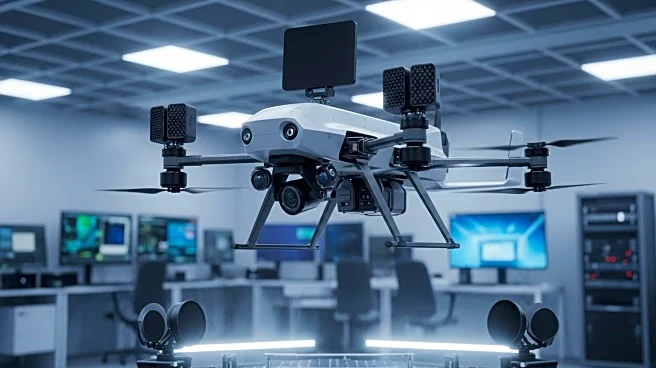What's Happening?
Lockheed Martin's Skunk Works division has announced the development of a new stealthy, autonomous drone named Vectis, which is expected to be operational by 2027. The Vectis drone is designed for a variety of missions, including surveillance, air-to-air combat, and airstrikes. OJ Sanchez, vice president and general manager of Skunk Works, revealed that the prototype is currently in progress, with parts ordered and the team actively working towards a test flight within the next two years. Although not specifically designed to win a particular contract, Vectis could potentially compete in the U.S. Air Force's collaborative combat aircraft (CCA) program against other contenders like General Atomics and Anduril. The drone is expected to be smaller than an F-16 but larger than Lockheed's Common Multi-Mission Truck missile. It will be compatible with both current and next-generation aircraft, including the F-22 and F-35, and is designed to integrate with various platforms in the battle space.
Why It's Important?
The development of the Vectis drone by Lockheed Martin represents a significant advancement in military technology, particularly in the realm of autonomous and multipurpose drones. This initiative aligns with the U.S. Air Force's strategic goals to enhance its capabilities through the CCA program, which aims to integrate advanced unmanned systems into its operations. The potential inclusion of Vectis in this program could provide the Air Force with a highly survivable and flexible platform, enhancing its operational effectiveness across various theaters, including the Indo-Pacific, European, and Central Command regions. The increased funding for the CCA program, as indicated by the reconciliation bill, underscores the importance of such technological advancements in maintaining U.S. military superiority.
What's Next?
As Lockheed Martin progresses with the Vectis prototype, the next steps will involve rigorous testing and evaluation to ensure the drone meets the operational requirements of the U.S. Air Force. The company will likely engage in further discussions with the Air Force to explore the potential integration of Vectis into the CCA program. Additionally, Lockheed Martin may face competition from other defense contractors, necessitating strategic positioning to secure a role in future military contracts. The outcome of these developments could influence the direction of U.S. military drone technology and its application in global defense strategies.











